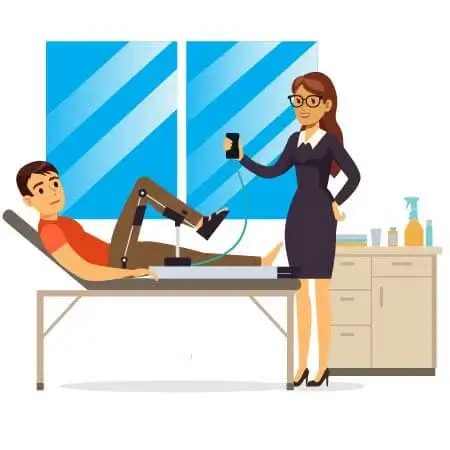🧠 Introduction: Why CPT Codes Matter in Therapy Billing
In 2025, healthcare billing is more complex than ever—especially for therapy services like physical therapy (PT), occupational therapy (OT), and speech-language pathology (SLP). The foundation of correct billing lies in using CPT codes, or Current Procedural Terminology codes, which describe the specific services a provider offers to a patient.
Using incorrect or outdated codes can result in claim denials, payment delays, or even compliance issues. That’s why it’s important to stay updated with the latest codes and billing rules every year.
This blog will walk you through the most commonly used and essential CPT codes for therapy billing in 2025, along with helpful tips, updates, and modifier guidance to ensure you’re billing accurately and maximizing revenue.
💪 Key CPT Codes for Physical Therapy (PT)
Physical therapists help patients recover mobility, manage pain, and regain function. Here are the CPT codes every PT should know in 2025:
1. 97110 – Therapeutic Exercise
Used when a therapist guides a patient through exercises to improve strength, endurance, flexibility, or range of motion.
-
Time-based: Billed per 15 minutes
-
Commonly used for orthopedic conditions, sports injuries, post-op rehab
2. 97112 – Neuromuscular Re-education
Covers balance training, coordination, postural training, and proprioception.
-
Often used for stroke patients, those with neurological disorders, or chronic balance issues
3. 97530 – Therapeutic Activities
Involves functional tasks (e.g., bending, lifting, reaching) designed to improve physical performance.
-
Great for return-to-work rehab or ADL (activities of daily living) improvement
4. 97161–97163 – PT Evaluations
-
97161: Low complexity evaluation
-
97162: Moderate complexity
-
97163: High complexity
These codes are chosen based on the complexity of the patient’s condition, clinical decision-making, and time spent evaluating.
5. G0283 – Electrical Stimulation (unattended)
Often used in pain management and muscle stimulation sessions where the therapist doesn’t stay with the patient.
✋ Important CPT Codes for Occupational Therapy (OT)
Occupational therapists help patients perform daily tasks more independently. These are the must-know codes in 2025:
1. 97535 – Self-Care/Home Management Training
Covers training in grooming, dressing, bathing, and using assistive devices.
2. 97110 – Therapeutic Exercise
Used by both OTs and PTs. Includes strength and endurance training.
3. 97530 – Therapeutic Activities
Also commonly used in OT for improving physical function using purposeful movement.
4. 97165–97167 – OT Evaluations
-
97165: Low complexity
-
97166: Moderate complexity
-
97167: High complexity
The level is selected based on patient condition and clinical decision-making.
5. 97537 – Community/Work Reintegration Training
Covers skills like using public transportation, shopping, or returning to work.
🗣️ Top CPT Codes for Speech Therapy (SLP)
Speech-language pathologists treat communication and swallowing disorders. The most relevant codes include:
1. 92507 – Individual Speech Therapy
Covers treatment for speech, language, voice, fluency, or auditory processing disorders.
2. 92523 – Evaluation of Speech and Language with Speech Sound Production
Used for evaluating both expressive and receptive language skills and articulation.
3. 92521 – Evaluation of Speech Fluency
Used when evaluating stuttering or fluency issues.
4. 92526 – Swallowing Function Treatment
For therapy related to dysphagia or impaired swallowing.
5. 92609 – Therapeutic Use of Speech-Generating Device
Used when working with patients who use communication devices.
🔄 2025 Updates You Should Know
✅ Evaluation Codes Emphasis
Payers are now focusing more on documentation for evaluation codes. Therapists need to clearly document:
-
Complexity level (low/moderate/high)
-
Patient’s condition
-
Clinical decision-making
-
Medical necessity
✅ Telehealth Codes
Post-pandemic, telehealth remains a billing option in many cases. However, not all therapy services are eligible. Make sure you check payer policies for:
-
Location-specific requirements
-
Eligible CPT codes
-
Accepted modifiers (e.g., 95)
🕐 The 8-Minute Rule for Time-Based Codes
Time-based CPT codes (like 97110 or 97530) follow the 8-minute rule, which means you must provide at least 8 minutes of a service to bill for one unit.
Here’s a quick breakdown:
-
8–22 minutes = 1 unit
-
23–37 minutes = 2 units
-
38–52 minutes = 3 units
…and so on.
Combine total time spent across billable timed services and assign the appropriate number of units accordingly.
🧾 Common Therapy Modifiers You Should Use
Modifiers add clarity to a claim. These are essential for therapy billing:
-
GP – Physical therapy services
-
GO – Occupational therapy services
-
GN – Speech-language pathology services
-
KX – Indicates services exceed the therapy threshold but are still medically necessary
-
59 – Used when multiple distinct procedural services are performed
Failing to include these can lead to denials even if the CPT code is correct.
💡 Therapy Billing Tips for 2025
Here are simple but powerful tips to stay compliant and improve reimbursement rates:
-
✔️ Always document why the service was medically necessary.
-
✔️ Match CPT codes with ICD-10 codes appropriately.
-
✔️ Know the difference between timed vs. untimed codes.
-
✔️ Check each payer’s coverage policy and documentation requirements.
-
✔️ Use correct modifiers and track thresholds for Medicare.
⚠️ Common Mistakes to Avoid
-
❌ Billing for a time-based code without tracking minutes
-
❌ Using evaluation codes without documenting complexity
-
❌ Forgetting to apply modifiers like GP, GO, or KX
-
❌ Assuming telehealth is approved for all therapy services
-
❌ Using outdated codes or rules from past years
Even small errors can lead to claim denials or audits.
📞 Final Thoughts
CPT coding for therapy billing in 2025 isn’t just about knowing the codes—it’s about knowing how to use them smartly. From understanding time rules and evaluation levels to applying correct modifiers, your billing process needs to be accurate and updated.
Staying on top of these changes means:
-
📈 Improved cash flow
-
✅ Fewer denials
-
💼 Better compliance



